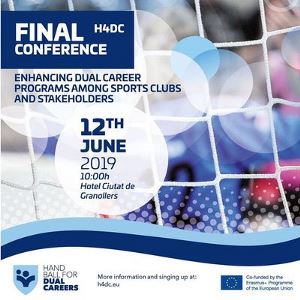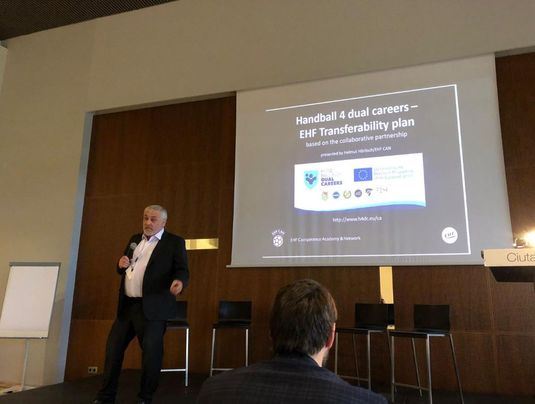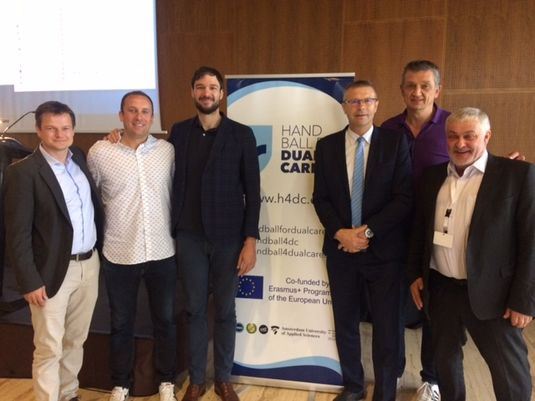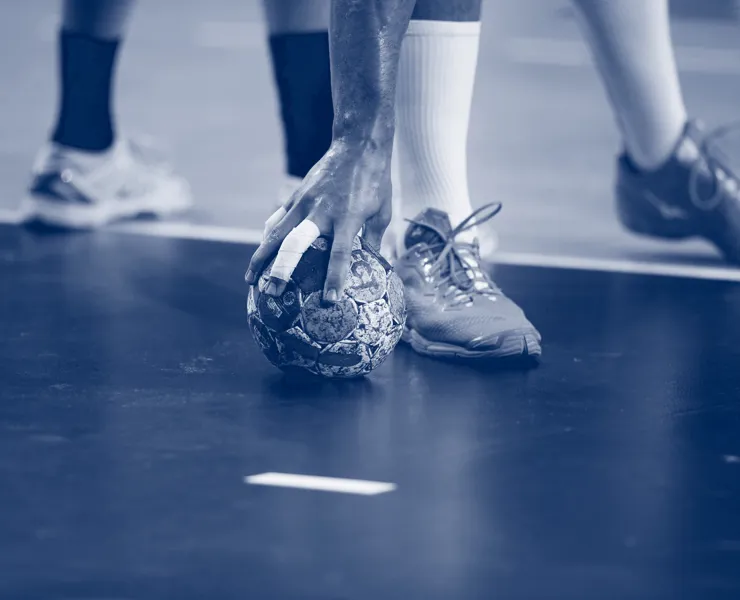

Granollers host final conference of Handball 4 Dual Careers project
Granollers host final conference of Handball 4 Dual Careers project
After 30 months and three phases, the Handball 4 Dual Careers project co-funded by the European Union’s Erasmus + Programme has come to an end. Spanish city Granollers hosted the final project conference and gathered representatives from the three participating clubs, experts in the dual careers and representatives of the European Handball Federation, the Amsterdam University of Applied Sciences (AUAS) and the Federation of the European Sporting Goods Industry.
Aim of the project was developing a comprehensive support service for the development of handball players through a collaborative approach between sporting bodies (clubs, federations), educational organisations and private sector representatives.
BM. Granollers (ESP), Fenix Toulouse Handball (FRA) and IK Sävehof (SWE) have been utilising the support service since January 2017. The project included 214 athletes across all three clubs during which 11 ‘Player2Business’ activities were organised with a total of 108 companies involved.
Transferability plan presented at final conference
Melanie Klemann from AUAS and Helmut Höritsch from the EHF presented the results and findings from the project but also introduced the Transferability plan, which will be used in the future as a dual career guideline.
Representatives from participating clubs have shared their experiences from the project and presented their plans for the future.
Hands-on experience from elite players
In a day-long conference, various dual career topics were discussed. It was especially interesting to hear what former elite athletes have to say about their transition from professional handball career and business career. Psychologist and member of the EHF Scientific Network Bojana Jelicic shared his expert point of view how should athletes and clubs be assisted during the transition.
Bogdan Wenta, former handball player, Polish national team coach and currently the major of Kielce, shared his experience on dealing with dual careers. Another former elite handball player, Carlos Prieto, explained the transition from elite handball to the business world.
Pictured from left to right: Stefan Walzel, Alvaro Ferrer, Carlos Prieto, Bogdan Wenta, Andrei Xepkin, Helmut Höritsch
Employability and education of athletes
The conference stressed the importance of combining education with the sport. Successful examples and projects working especially for dual careers topic were presented.
A round table discussion was held about enhancing athlete employability through the values that sports transmit. In the lead-up to the round table discussion, a success case was presented about the athletes who have managed to transition from sports to working in a company.
The conference was concluded with a discussion about the future of dual careers and why it is important to keep developing this initiative.
More information about the project and the full project results will be available on the official project website www.H4DC.eu.







